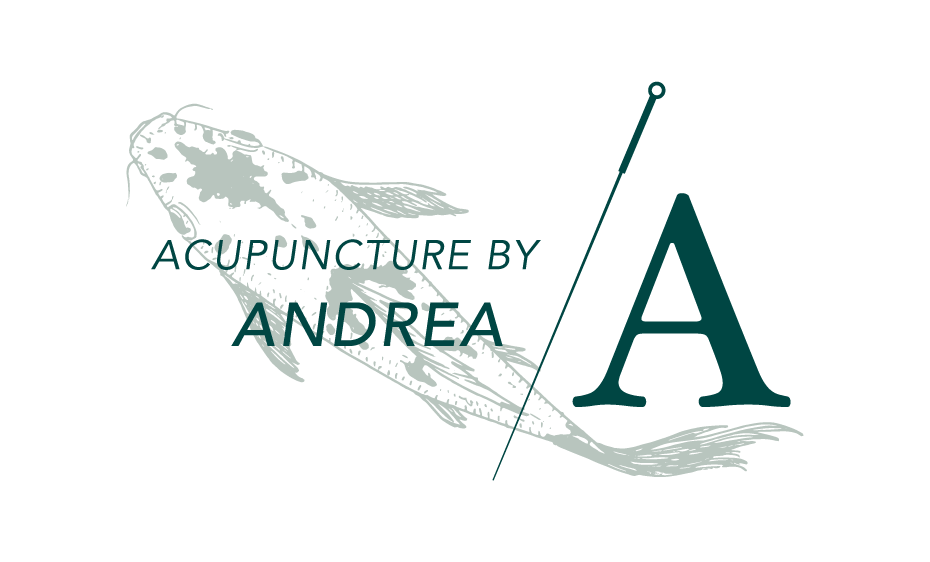Free Yourself From Trauma With Acupuncture
Post-traumatic stress disorder (PTSD) results from exposure to a traumatic event that causes long-lasting health problems, both mental and physical. PTSD is often associated with military veterans, but it can happen to anyone after any type of traumatic experience from car accidents, natural disasters, abuse, and medical problems, to death of a loved one or witnessing of a violent event. More than 8 million Americans are living with post-traumatic stress.
In both Western Medicine and Traditional Chinese Medicine (TCM), PTSD is attributed to an overactive nervous system. In TCM, emotional and mental symptoms are directly related to physical problems caused by imbalances in the functioning of our body’s systems. Acupuncture treats the trauma and negative emotions that are creating your imbalances.
“Post-traumatic” means that long after the directly experienced trauma, you experience a heightened response that never allows the nervous system to return to a state of balance and calm. You may experience PTSD as flashbacks, nightmares, mood swings, panic attacks, depression or insomnia. For most people, this has a profound impact on how they live their daily life, often resulting in social isolation, chronic pain, substance abuse or emotional upset.
Physical symptoms are the body’s nervous system response to chronic stressors, a real-life occurrence of the fight or flight response. You become hyper vigilant, and your body shuts down any processes that are not critical to survival, resulting in some of the following symptoms.
Physical symptoms associated with PTSD and an overactive nervous system include:
Increased heart rate and heart palpitations
Insomnia or difficulty sleeping
Muscle tightness and tension
Fatigue
Anxiety, fear, depression, anger, or sadness
Nightmares or flashbacks
Social avoidance, feeling isolated and/or numb
Relieve your PTSD symptoms
Acupuncture is a highly effective tool to include in your wellness treatment plan for PTSD and its effects on your emotions and health. Acupuncture sessions free trauma by releasing the affected organs and decreasing the symptoms occurring in your physical body.
The combined physical, psychological and spiritual trauma of PTSD means focused efforts will be needed on the part of the practitioner and the patient to achieve results. The patient will most benefit if they feel a connection of trust and a desire to work on what have become familiar and ingrained aspects of their life. The practitioner must have a willingness to listen and be patient, with an unhurried approach to treatment. If the traumatic event happened in childhood and the patient has lived with intense emotions for many years, the body will take longer to relax and balance. There is no set timeline for treatment of any ailment in acupuncture, but generally, the longer the illness has been present, the longer the treatment time.
When the patient-practitioner relationship begins, acupuncture is first applied to achieve relaxation. The overworked adrenals will finally get a break from endorphin dumps when the needle is inserted into points that shut down the pumping of this chemical that has kept you in an overstimulated state.
Relaxation allows your body to regain some balance so that treatment of major complaints can begin. Some people living with trauma have back pain due to overtaxed kidneys, while some have chest tightness and congestion and feel like they can’t breathe. Others are suffering from headaches or nightmares. Determining the main physical issue will suggest what organ system we should focus on for treatment. For example, in treating stress-related digestive issues through points governing the stomach, memory and focus will also be improved as blood flow to the kidneys is increased.
In all acupuncture sessions we are treating multiple facets of the body simultaneously—some complaints may seem unrelated, but relief will be found across several issues.
Once the nervous system is calmed, the adrenals stop firing, the gut settles, and the body starts to heal. Patients are often amazed to see some immediate results including improved sleep. As follow up appointments continue, triggering memories may resurface, and a relapse into previous coping behaviors may occur. This is not a setback, but merely a step in the healing process. Think of when you move. You have to pack, clean everything and start throwing away unwanted items. During that process you will likely find possessions that you haven’t seen in a while, maybe old photos, a childhood toy, or an item of clothing long forgotten. However you feel about these unexpected and memory-evoking finds, you don’t stop the moving process. The same thing happens when you are healing: as acupuncture releases and relaxes, physical and mental changes will take place. With continued treatment and better sleep, decreased anxiety, and improved digestion, your outlook will grow more positive.
TCM Treatment Options for PTSD
Secondary pain exacerbates the primary stressors of PTSD. Along with acupuncture, there are a number of options used for pain relief. All possible treatment options are discussed during an initial appointment.
Most patients I treat living with PTSD have pain with extreme tightness in the neck and shoulders. Cupping will soften or loosen the shoulders, back and neck.
Regular massage treatments can relieve pain as well as relax and calm the mind and body.
Bleeding techniques have been used for 1000’s of years and are remarkably effective. In TCM, the free flow of blood and qi is what makes everything in our body flow smoothly. When we are living with constant stress and fear, or we have endured physical trauma, our blood is stagnant. Spider veins and dark spots on the body are a result of compromised blood flow and coagulation.
In this treatment, a lancet is used to lightly pierce the skin to allow a small amount of blood to flow out. When the qi isn’t flowing freely, fluids back up and pool, causing pain. Applying bleeding techniques, circulation immediately improves and blood starts moving to areas that may have been stagnant for decades. This reduces pain and helps with sleep and emotion regulation.
The Positive Effect
Promote more restful sleep—Acupuncture releases endorphins like serotonin and dopamine during treatment, which will relax and calm your body. Blood circulation also improves during treatment. In Traditional Chinese Medicine, circulation is the main reason sleep is difficult for most people.
Ease depression—In addition to endorphins, acupuncture has been shown to influence the release of other neurotransmitters, such as serotonin and dopamine. The release of endorphins can also create a sense of well-being and relaxation, contributing to acupuncture’s stress-reducing effects. Depression in Chinese Medicine is treated as long term liver stagnation. The liver is responsible for over 400 functions in the body and increased, prolonged stress can diminish its ability to complete all of these tasks.
Relieve muscle tension—Relaxation allows the body to unclench. Muscle tension is relieved during the session and for days after. Blood and fluid movement is improved, carrying away lactic acid that has built up in the muscles. Acupuncture points on the gallbladder meridian directly affect fascia and connective tissue to help soften tension.
Improve digestion and circulation —When the body is tense and rigid, breathing is compromised and the lung’s capacity to circulate oxygenated blood to the body is also then compromised. Treatments focused on lung health and circulation will improve overall health and blood flow.
The digestive system doesn’t function during a fight or flight response because the body is focused on survival and shuts off this secondary function, along with the spleen and stomach eliminating the less vital hunger signals. Targeted treatments will strengthen the spleen’s function and improve digestion.
Reduce anxiety—The digestive system governs the state of mind. By treating the stomach and spleen during an acupuncture session, the mind is calmed and over-thinking is reduced or eliminated.
Alleviate nightmares—Sleep issues are acute for those living with PTSD. Fear is housed in the kidneys and when they are in a compromised state your heart is not “tethered” or grounded by and to them. Add in a weak spleen via food stagnation and instead of repairing and renewing, your body is breaking down food when it should be in a state of rest. Targeted acupuncture treatments for the kidneys and spleen will help you on your way to a peaceful night’s rest.
Improve focus and memory—With a compromised digestive system due to trauma, the spleen and stomach cannot help you focus as you normally do.
Memory is the ability to store our thoughts and emotions and the kidneys are responsible for much of this. By improving the blood flow to the kidneys, they can make and access memories with a feeling of security.
Decrease irritability —Anger and frustration belong to the liver. Irritability comes from a constrained liver. With regular acupuncture treatments, PTSD feelings of insecurity and frustration can be alleviated. When the liver is happy, you are happy.
Stabilize mood swings—Years of adrenaline highs and lows due to an ongoing stressor or memories from a traumatic situation make highs and lows a normal pattern. With acupuncture treatments restoring physical balance, breathing, digestion, liver and kidney functions and our emotions become regulated and balanced.
PTSD is not a new phenomenon, although in contemporary society the occurrence of this debilitating illness may be increasing. Acupuncture by Andrea can help. The practices of acupuncture, cupping, and massage can relieve the physical and emotional effects of long-term trauma.
Screen yourself or a family member for PTSD with an online tool from the Anxiety and Depression Association of America.


